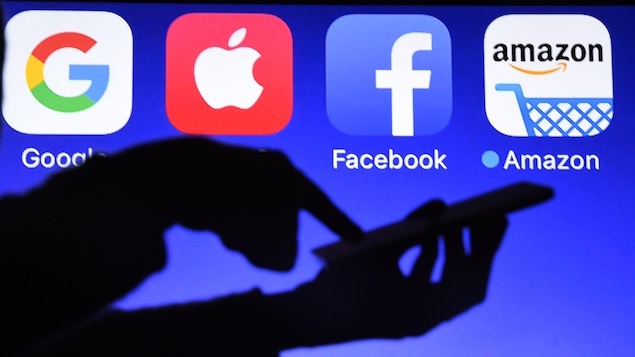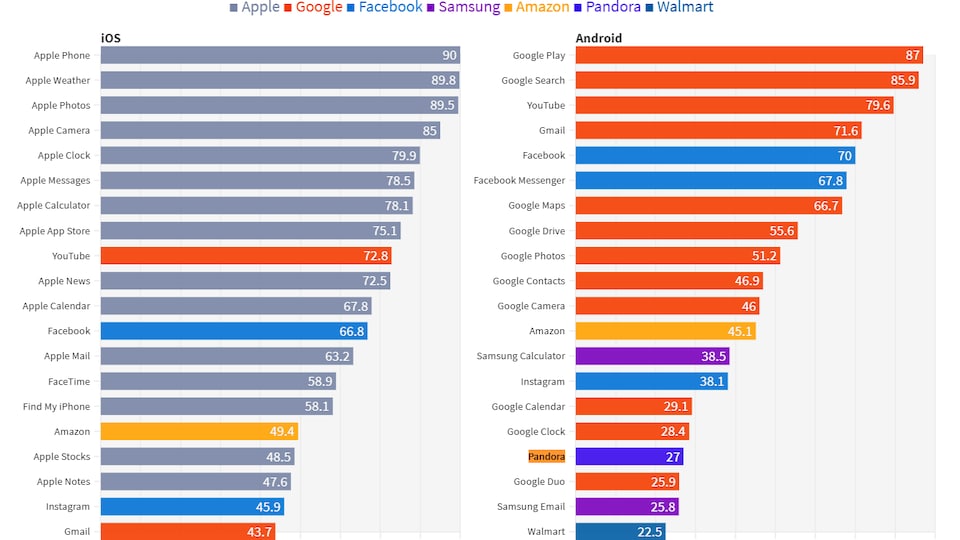When you buy a smartphone, whether it’s Android or iOS, the device comes with a few mobile apps built in already.
For Apple, there are, among others, applications such as Phone, Weather, Photos, Messages, Clock, Mail, Calculator, Notes, Calendar, News, etc. On the Android side, these are Google Play Apps, Google Search, YouTube, Gmail, Maps, Drive, Photos, Calendar, Contacts and many more.
The Comscore study commissioned by the giant Facebook – one of the giant’s most critics – ranks the popularity of pre-installed apps on iOS and Android smartphones compared to those created by other developers.
Unsurprisingly, apps that offer basic services like weather, photos, and time far outnumber the rest, making their competition more difficult.
However, other non-essential apps, such as Apple Maps and Apple Music, also dominate. Even Gmail carves a place for selection on Android as well as in the Apple menu, a few boxes below Mail.
Amazon, Facebook and Instagram, which are not products of Apple and Google, nonetheless made their way to the list of the 20 most popular apps according to the study.
For the latter, Comscore polled about 4,000 people in the United States about which virtual apps they used in November 2020. The company also used data it already collects regularly on apps and websites for its reports.
According to The Verge, 75% of the top 20 apps on iOS are made by Apple, while Google is behind 60% of the most used apps on Android.
These findings are timely: in the United States, bills are being studied to increase regulation of web giants, in particular to prevent them from favoring their services over other developers. For example, Apple may be forced to accept third-party apps on its devices, as Google already does.
Gaps in the study
While Google did not respond to a request for comment from The Verge, Apple rejects the study’s findings outright.
The December 2020 Facebook-funded survey has been tightly edited to give the false impression that there is little competition in the App Store
An Apple spokesperson told The Verge.
In fact, third-party apps compete with Apple apps in all categories and enjoy widespread success.
Comscore’s methodology removes many pre-installed apps from its rating, including Safari and Chrome browsers. For Android, the results are also not categorized by device type, such as Samsung-branded phones versus Pixel, a Google product, which may add additional bias.

“Proud thinker. Tv fanatic. Communicator. Evil student. Food junkie. Passionate coffee geek. Award-winning alcohol advocate.”


